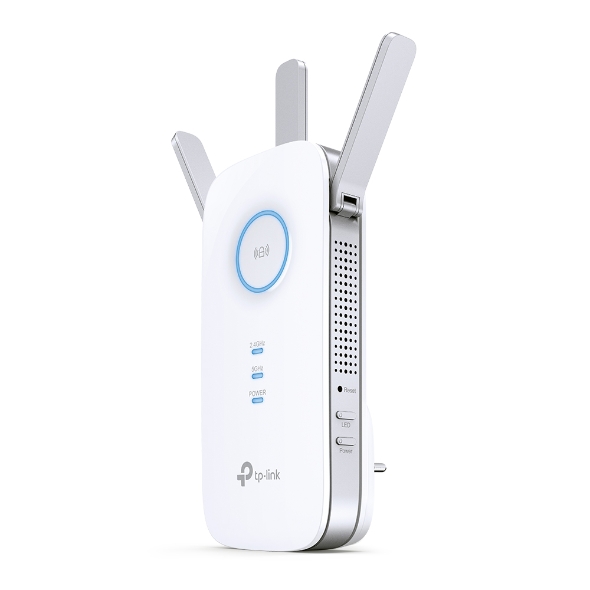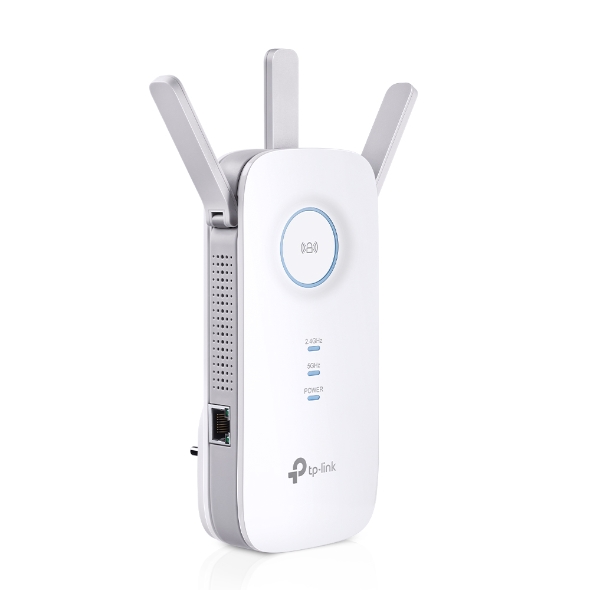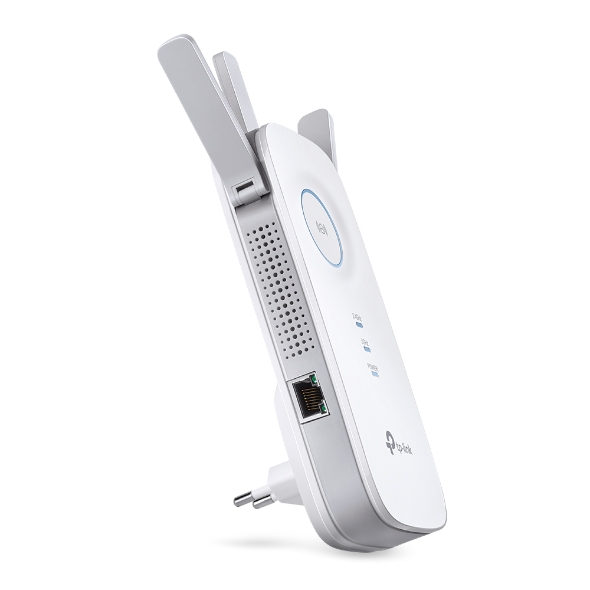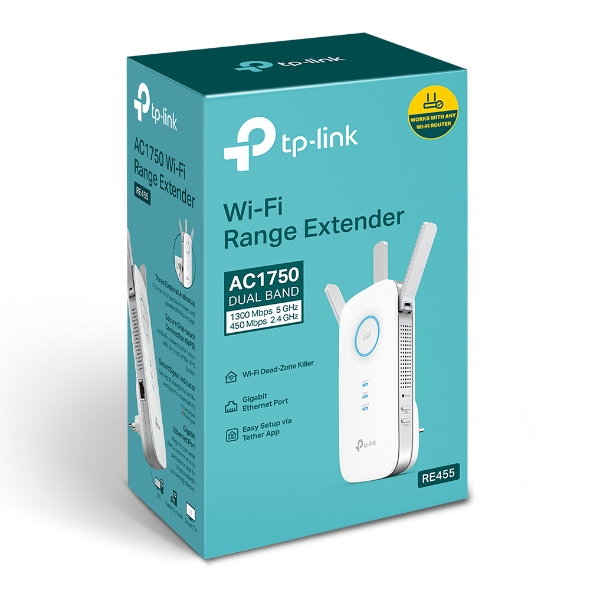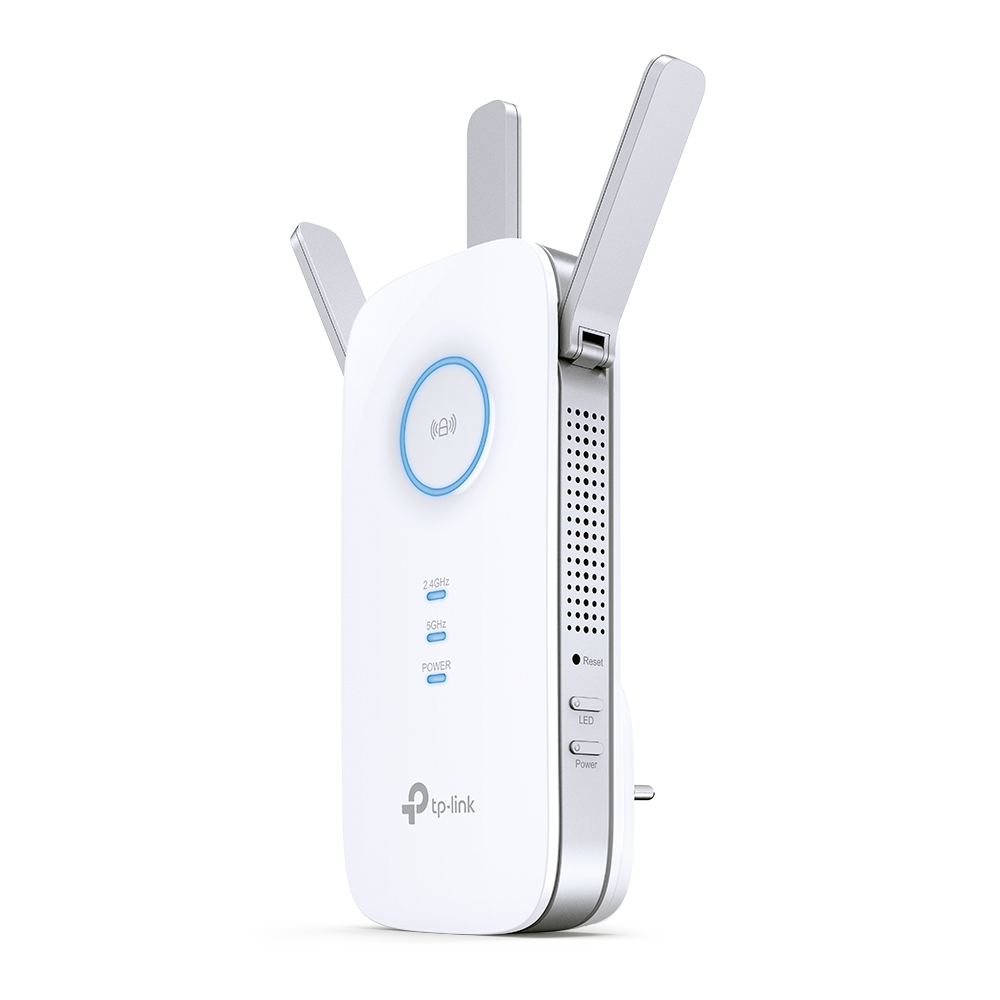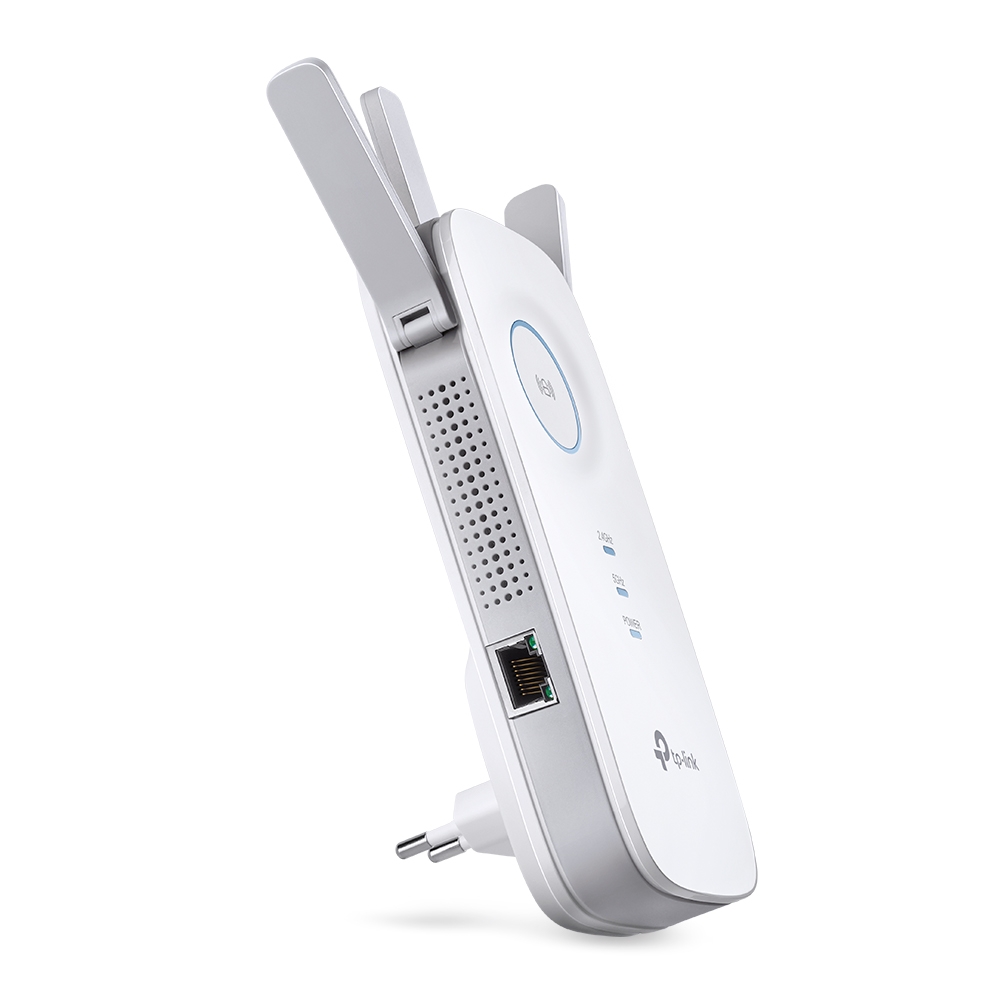RE455
AC1750 Wi-Fi Range Extender
- Maximum Coverage - Extend Wi-Fi coverage by up to 1,115 m2(12,000sq. ft).
- AC1750 Dual Band Wi-Fi - Simultaneous 450Mbps on 2.4GHz + 1300Mbps on 5GHz
- Three Antennas - Three adjustable external antennas provide optimal Wi-Fi coverage and reliable connections
- Gigabit Ethernet port - Act as a wireless adapter to connect a wired device to your network at Gigabit speed
- Intelligent Signal Light - Help to find the best location for optimal Wi-Fi coverage by showing the signal strength
- AP Mode - Create a new Wi-Fi access point to enhance your wired network with Wi-Fi capability
- TP-Link Tether App - Easily access and manage your network using any iOS or Android mobile device
- Ultimate Compatibility - Extend the range of any Wi-Fi router or wireless access point
| HARDWARE FEATURES | |
|---|---|
| Standards and Protocols | IEEE802.11ac, IEEE 802.11n, IEEE 802.11g, IEEE 802.11b |
| Plug Type | EU, UK, US, AU, KR, JP |
| Interface | 1 x 10/100/1000M Ethernet Port (RJ45) |
| Button | WPS Button, Reset Button, LED Button, Power Button |
| Input Power | 100-240V~50/60Hz |
| Max. Power Consumption | 10W(max power consumption) |
| Dimensions ( W x D x H ) | 6.4 x 3.0 x 2.6 in. (163 x 76.4 x 66.5mm) |
| Antenna | 3 x external |
| WIRELESS FEATURES | |
|---|---|
| Frequency | 2.4GHz & 5GHz(11ac) |
| Signal Rate | 5GHz:Up to 1300Mbps 2.4GHz:Up to 450Mpbs |
| Reception Sensitivity | 5GHz: 11a 6Mbps:-93dBm@10% PER 11a 54Mbps: -76dBm@10% PER 11ac HT20 mcs8: -68dBm@10% PER 11ac HT40 mcs9: -64dBm@10% PER 11ac HT80 mcs9: -61dBm@10% PER 2.4GHz 11g 54M: -77dBm@10% PER 11n HT20 mcs7: -73dBm@10% PER 11n HT40 mcs7: -70dBm@10% PER |
| Wireless Modes | Range Extender/Access Point |
| Wireless Functions | Wireless StatisticConcurrent Mode Boost Both 2.4G/5G WiFi BandAccess ControlLED ControlDomain Login FunctionWi-Fi Coverage |
| Wireless Security | 64/128-bit WEP WPA-PSK / WPA2-PSK |
| Transmission Power | <20dBm(2.4GHz) <23dBm(5GHz) |
| OTHERS | |
|---|---|
| Certification | CE, FCC, RoHS |
| Package Content | AC1750 Wi-Fi Range Extender RE455Quick Installation Guide |
| Box Dimensions (W X D X H) | 7.9 x 4.9 x 3.4in. (202x 125 x 86mm) |
| System Requirements | Microsoft® Windows® 98SE, NT, 2000, XP, Vista or Windows 7, 8, 10, Mac® OS, NetWare®, UNIX® or Linux. |
| Environment | Operating Temperature: 0°C~30°C (32°F~86°F) Storage Temperature: -40°C~70°C (-40°F~158°F) Operating Humidity: 10%~90% non-condensing Storage Humidity: 5%~90% non-condensing |
Maximum wireless signal rates are the physical rates derived from IEEE Standard 802.11 specifications. Actual wireless data throughput and wireless coverage are not guaranteed and will vary as a result of 1) environmental factors, including building materials, physical objects, and obstacles, 2) network conditions, including local interference, volume and density of traffic, product location, network complexity, and network overhead, and 3) client limitations, including rated performance, location, connection quality, and client condition.
The product may not be compatible with routers or gateways with firmware that has been altered, is based on open source programs, or is non-standard or outdated.
